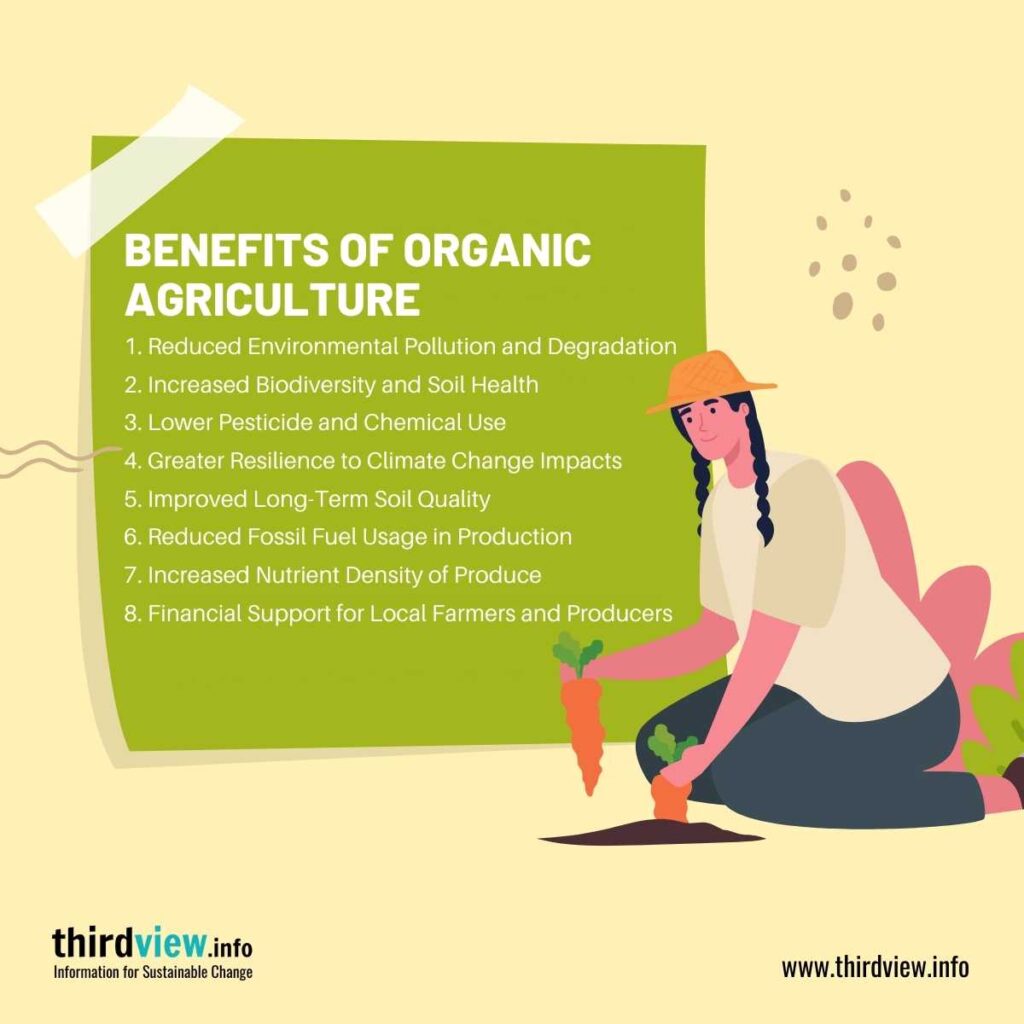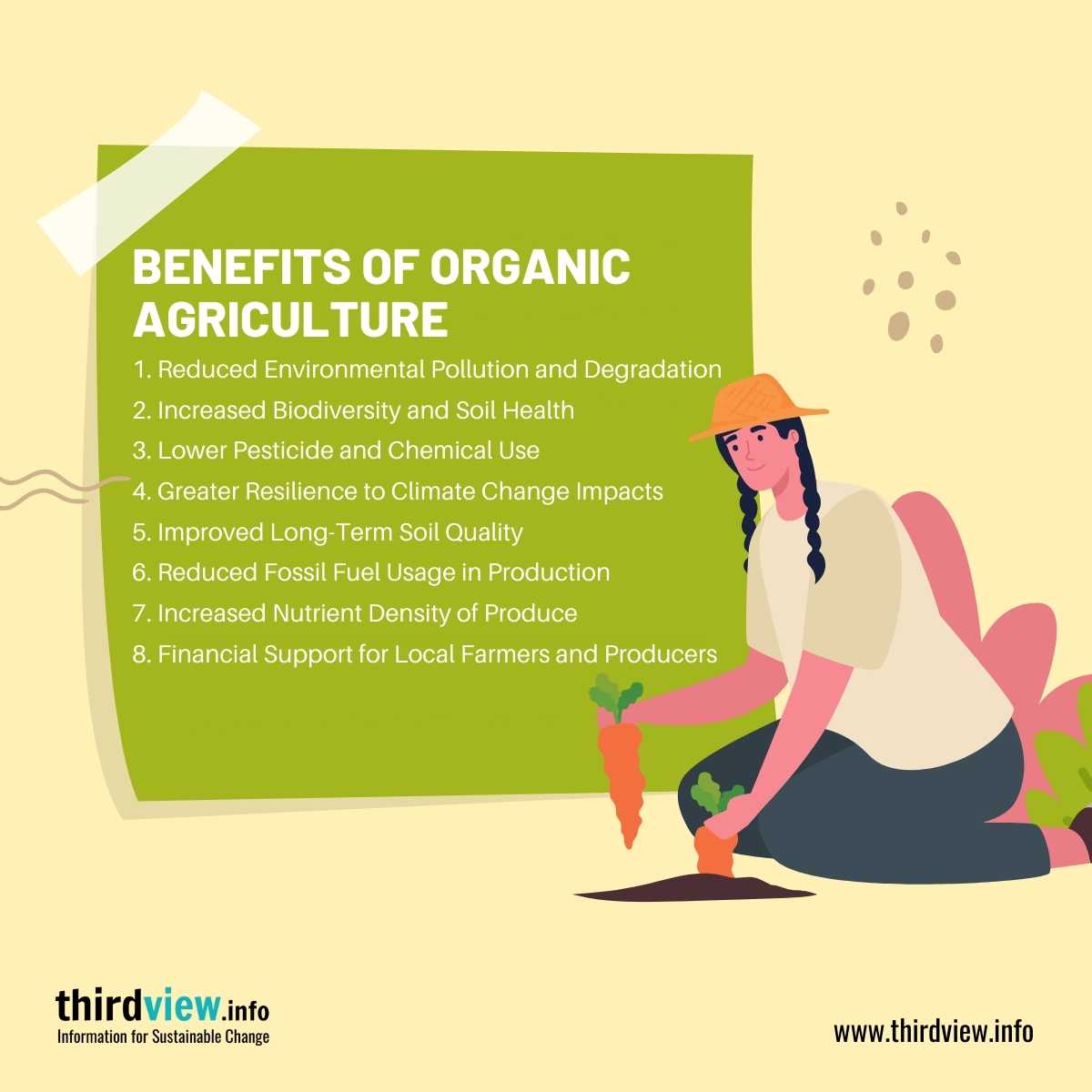Organic agriculture is an approach to farming that strives for sustainability, the enhancement of soil fertility and biological diversity while reducing pollution. As environmental awareness continues to grow, more and more farmers are choosing to embrace organic principles as part of their farming practices. Let’s look at some of the ways organic agriculture benefits not only farmers but also our planet.
Healthier soil
Organic farming emphasizes a balanced approach to soil fertility, rather than relying solely on chemical fertilizers and pesticides that can damage the delicate ecosystem in the soil. By focusing on natural resources such as composting, crop rotation and cover crops, organic farmers protect their soils from erosion and preserve important microbiological activity. This helps ensure that soils remain fertile for future generations of farmers.
Healthier food
One of the main benefits of organic farming is that it produces healthier food than conventional farming methods. Since chemical fertilizers and pesticides are not used, there are no traces of these toxins in the food produced by organic farms. Additionally, studies have shown that organic foods are more nutrient-dense than conventionally grown foods. Organic foods have higher levels of antioxidants and other essential nutrients like iron and magnesium, which can help improve health and well-being.
Less pollution
Organic farming methods reduce pollution by avoiding the use of synthetic fertilizers and pesticides, which can leach into groundwater and contaminate nearby water sources. Additionally, organic farms use fewer chemicals overall, so less waste enters our natural environment. This means fewer harmful pollutants in our air and water that can have long-term negative health effects on humans and animals alike.
Protection of biodiversity
Organic agriculture encourages biodiversity on farms by utilizing more plant rotations, habitat preservation measures and integrated pest management programs. Having a diverse range of species helps promote a healthier ecosystem that can support a larger variety of organisms while also helping plants thrive in different conditions. Furthermore, by avoiding chemical inputs such as synthetic pesticides or herbicides, organic farmers help protect beneficial insects like bees or spiders from harm.
Organic agriculture is an important step towards preserving our planet for future generations by protecting our soils from erosion, reducing pollution caused by chemical inputs, and boosting biodiversity on farms around the world. As environmental awareness grows among consumers —and government policies begin to reflect this shift—we hope to see even more farmers embracing organic principles as part of their agricultural practices in order to create a healthier world for us all.


